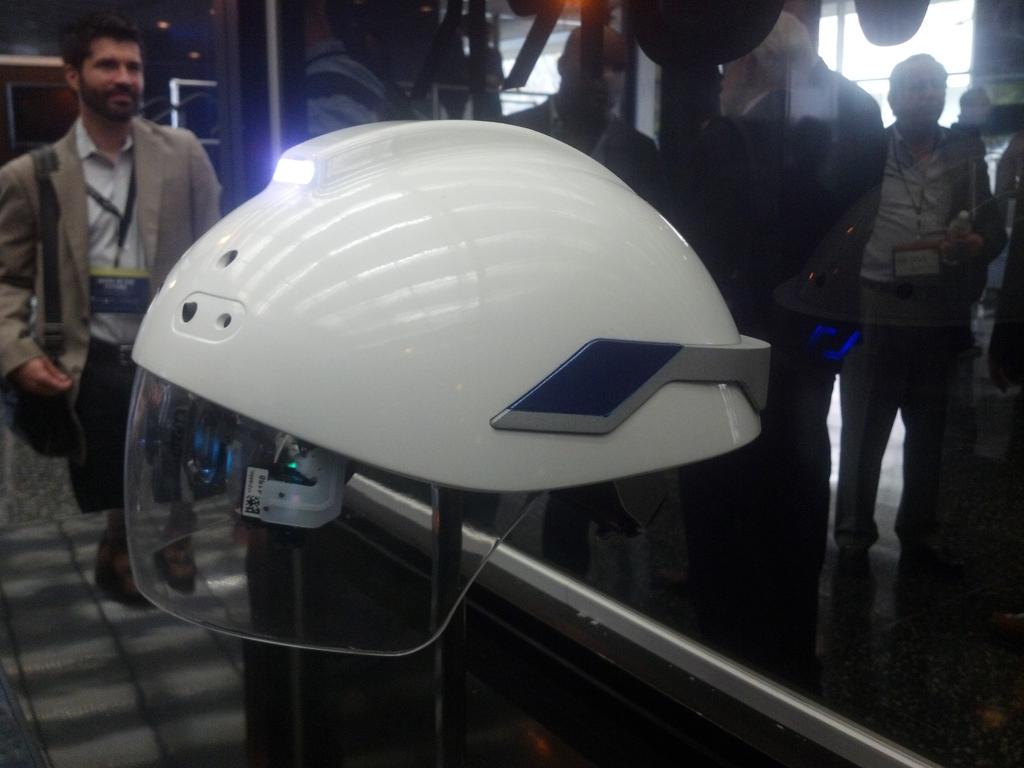During a 4D Expo hosted in Los Angeles, information was released about an aquisition by an augmented reality company Daqri, all in an effort to make one the most cutting edge AR system the world has ever seen.
The firm they picked up is called Melon who has been making smart headbands for a couple years already. Their latest version contains an Electroencephalography (EEG) sensor that monitors brain waves of the wearer. EEG hardware and software detects electrical signals along the scalp that are being fired off in the neuron networks of the brain. This has been mostly been used for health and relaxation before in the past; but since Daqri has taken them under their wing, the Melon platform will be taken to even greater heights now that they are in the industrial realm.
We’ve seen Daqri’s press releases and promotional videos in the past, so we were definitely aware that Daqri was doing amazing work in the AR and computer vision fields. However, it was a little bit of a surprise to see the company acquire Melon – even though it all makes sense given the capabilities that EEG can have. When looking at the Daqri Smart Helmet, it is clear that the company is approaching AR on a large scale industrial level rather than dipping their toes into the hectic publicly available commercial world. This allows for them to create systems that are extremely powerful on their own schedule. Sure, the technology they are working on is not cheap; but it hit all the marks that people in AR industries are looking for.
For one, the Daqri Smart Helmet is rugged enough to be taken into dangerous areas. It can with stand continuous abuse which is critical in areas of construction where heavy machinery is all around. The helmet fall onto a concrete floor and still be used with barely anything but a minor scratch here or there. Trust me, I saw one of the helmets hit the ground at the 4D expo with little notice. This headset is designed to withstand a beating. Another industrially leaning feature Daqri introduced was thermal imaging. This allows for workers to check electrical lines and see if the other machines and panels being used are overheating or not.
The headset even has multiple cameras embedded in the frame all around it. This allows for 360 image and video capturing, allowing for supervisors and other co-workers to check in on their world from their perspective. This also gives the platform an option for recording the entire surrounding for all the users networked together through the helmets.
Obviously, all these features make perfect sense for this helmet for construction purposes, yet the question still comes to mind – why will there now an EEG sensor in it?
Well, if you start to think about the workers wearing the helmet, those individuals are mostly likely going to find themselves in a stressful place at some point in their career. That is the nature of the construction industry. So, when the body and the mind starts taking a toll because of hard work that is being accomplished, the quality of work can suffer. This in turn increases the chances that an accident may happen which might lead to an injury or possibility even death.
This is where the technology developed by Melon comes in. It allows the helmet to pick up and monitor the workers’ personal health. This includes assessing brain waves patterns, body temperature, and stress levels. If the workers are tired or not paying attention as much as they should, the headset can detect that prompting the person know that perhaps they should take a break.
Overall, the acquisition of Melon by Daqri is a smart move because it puts the health of the workers using the system as a top priority. Security is exponentially important in the construction industry, and it is nice to see that Daqri is keeping their workers safe by integrating EEG sensors into their headset.
For additional information about Daqri and Melon, check out the links above. Also, watch the promo video for the Smart Helmet below:
https://www.youtube.com/watch?v=qIU456jtkmw



























